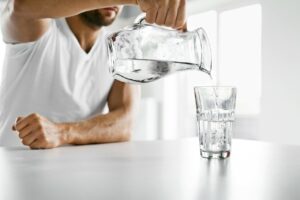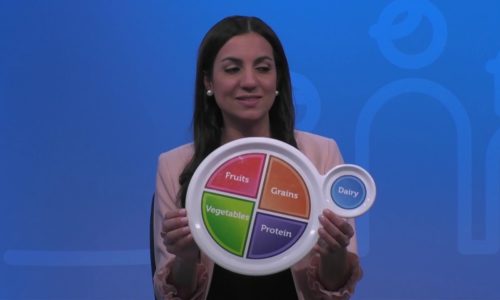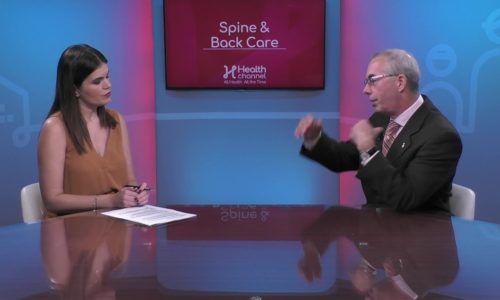How much water should I be drinking? |

Whether spring-sourced, sparkling, flavored, or simply out of the tap, water seems to have become the beverage de rigueur these days. And for good reason—water constitutes about 60% of our body weight and is essential for most bodily functions. Taking in enough fluids each day is highly important since inadequate intake, leading to dehydration, can have serious medical consequences.
How much water do we need? Many people have heard of the recommendation that we should consume “8 ounces of water, 8 times a day”. However, in a report published in 2002, noted physiologist Heniz Valtin researched this question and found no scientific evidence to support this “8 x 8” recommendation. His evidence showed that healthy bodies do a remarkable job at self-regulating their fluid balance and that the “8 x 8” recommendation may in some cases be excessive. This position was echoed by a 2004 report from the Institute of Medicine (IOM) who stated that “the vast majority of healthy people adequately meet their daily hydration needs by letting thirst be their guide”. The IOM did set general recommendations of total water intake at 2.7 liters (91 ounces) for women and 3.7 liters (125 ounces daily) for men.
Do beverages other than water count toward daily fluid requirements? Dr. Valtin’s research found that moderate consumption of caffeinated and alcoholic beverages could count toward daily fluid requirements. Additionally, since approximately 20% of our water intake
comes from food, those with high water content such as watermelon, broccoli, lettuce and yogurt also contribute to our daily requirements.
Are there situations where more than the “8 x 8” recommendation applies? It should be noted that the recommendation to let “thirst be your guide” applies primarily to healthy, sedentary adults living in a temperate environment. There are a number of circumstances in which our fluid requirements increase significantly. Examples of this are working in a hot/humid environment, exercising for a prolonged period of time, or in association with certain illnesses. For short bouts of exercise, this may just be an extra 1-2 cups of water, but for more intense exercise lasting an hour or more, regular intake may be required to avoid dehydration. Depending on the ambient temperature, this usually means taking in 2 to 3 cups an hour. With strenuous athletic activity lasting several hours, or if working in the heat, a sports drink (e.g. Gatorade, Powerade, others) may provide the additional benefit of replacing electrolytes lost in sweat. Illnesses, such as fever, vomiting and diarrhea, cause your body to lose additional fluids. In these cases you should drink more water and may even need an oral rehydration solution, such as Pedialyte.
The average urine output for adults is 1.5 liters a day and people lose almost a liter of water a day through breathing, sweating and bowel movements. Since approximately 20% of our daily fluid requirement is met through the foods we eat, this leaves about 2 liters (or about 8 cups) to get through drinking water and other fluids. This could well be the origin of the “8 x 8” recommendation. In any case, it appears that if you drink enough fluid so that you rarely feel thirsty, intake is probably adequate without having to count your cups.
Sources for article:
Water: How much should you drink every day? from Mayo Foundation for Medical Education and Research
‘Drink at least eight glasses of water a day.’ Really? Is there scientific evidence for “8 x 8”? from the American Journal of Physiology
If you have any more questions just Ask Hanna, our health advisors are here to help.
Kent Davidson MD – Health Tip Content Editor
Reviewed and Approved by Charles W. Smith MD, Medical Director on 6-29-2016
Image: ©Shutterstock / puhhha








